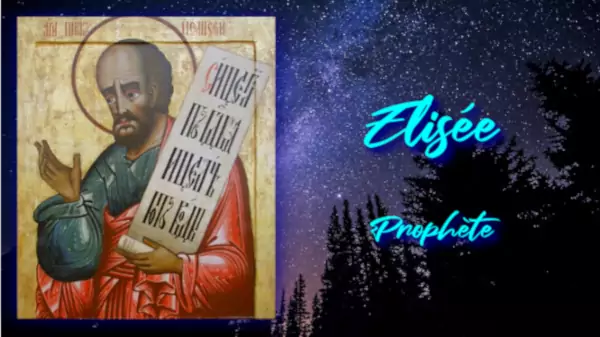June 14 - Elisha is an Old Testament prophet whose activity is described in the Second Book of Kings. He was the son of Shaphat, a rich farmer from Abel-Mehola in the Jordan Valley. When Elijah meets him, Elisha plows his field with 12 other people, each leading a pair of oxen (1 Kings 19, 19).
After a brief mention in the First Book of Kings where we see Elijah designating Elisha as his disciple, there is no further reference to Elisha before chapter 2 of the Second Book of Kings where we see Elijah being taken away by "a chariot of fire" in a whirlwind. There follows the account of Elisha's actions and the various miracles he performed until chapter 9. Finally, his death and burial are told at the end of chapter 13.
He succeeded Elijah in the reign of Jehoram son of Ahab, king of Israel. He fulfilled his role as prophet from the ascent to heaven (in a "chariot of fire") of Elijah (927 B.C., 850 B.C.) for about 50 years in the kingdom of Israel, under the successive reigns of Joram, Jehu, Jehoahaz and Joash. His mission was directed mainly towards the Israelites but also towards some pagans. He died around 800BC.
According to tradition, Elisha and his servant would have remained for some time in the caves of Mount Carmel to live as a hermit and instruct his disciples. The passage in the second book of Kings showing the Sunamite woman going to Mount Carmel to look for the prophet seems to confirm this tradition.
Elisha is also quoted in Ecclesiasticus (or Sirach): "Elijah (truly) was stolen by the whirlwind, but (and) Elisha was filled with his spirit. During his life he did not fear (any) prince(s), and no one triumphed over him by his power. Nothing (no words) ever overpowered him, and (even) after his death his body prophesied. During his life he did (extraordinary) wonders, and after his death he worked wonders". Unlike the prophet Elijah, Elisha is mentioned only once in the Gospel according to Luke, by Jesus, answering his detractors: "And there were many lepers in Israel in the days of Elisha the prophet; and none of them was made clean, but Naaman the Syrian".








